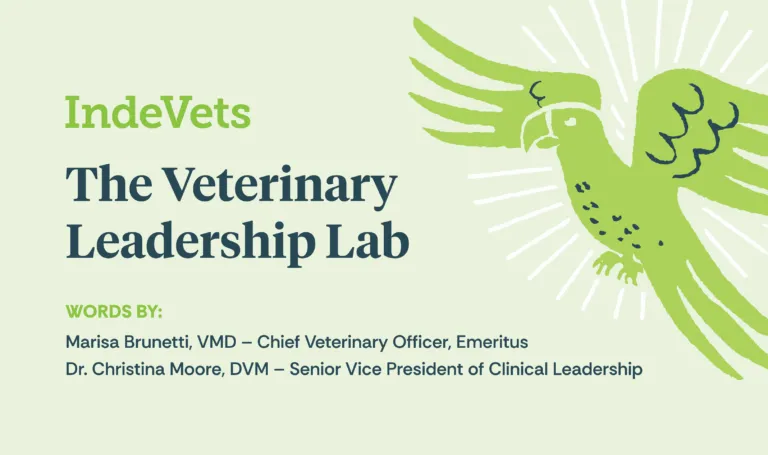Veterinary Leadership: Building Confidence and Capabilities to Lead with Authenticity, Empathy, and Impact



Key Takeaways from Southwest Veterinary Symposium 2025
Veterinary leadership isn’t just about titles. It’s about building the skills, mindset, and confidence to guide teams, empower others, and create lasting impact. At this year’s Southwest Veterinary Symposium, we presented a full-day Leadership Lab designed to give veterinarians the essential tools to thrive as leaders in their practices and communities.
Across seven interactive sessions, we provided a framework for mastering communication, problem-solving, feedback, delegation, and more.
Here’s a look at the key takeaways from each session. Check out each session’s recap doc to dive deeper and start applying these strategies in your practice.
1. Strengthening Communication in Veterinary Practice
Effective communication is the cornerstone of strong teams and client relationships. Participants explored practical skills like making meaningful introductions, practicing active listening, showing empathy, and building trust through clear, authentic dialogue. These tools help foster collaboration and create lasting professional and client connections.
2. Fostering Integrity and Trust in Veterinary Care
High-performing teams thrive on trust and integrity. This session examined the five key characteristics of teams that excel, from strong work ethic to honest conflict resolution, and introduced the accountability ladder as a way to move from blame to ownership. By practicing integrity daily, leaders create a culture where collaboration and accountability flourish.
3. Developing Critical Skills for Problem Solving
Great decision-making blends data, experience, and intuition. Veterinarians learned a structured five-step approach to sharpen critical thinking, avoid common cognitive traps, and flex their leadership style based on context. By reflecting on biases and assumptions, leaders can make more effective decisions for their teams and patients.
4. Leading Effective Teams
Team success starts with purposeful leadership. This session focused on building cultures of trust, overcoming common dysfunctions (inspired by Patrick Lencioni’s model), and putting team-first behaviors into practice. From recognizing unsung heroes to setting clear expectations, participants discovered strategies to inspire collaboration and boost morale.
5. Leading with Influence
Empowerment is one of the most impactful aspects of leadership. Attendees explored how to coach for growth, motivate others with both intrinsic and extrinsic strategies, and build strong, trust-based relationships. Leading with influence means inspiring others through encouragement and purpose rather than authority.
6. Delivering Feedback
Feedback is both a gift and a growth tool. This session equipped leaders with techniques for giving timely, specific, and respectful feedback, as well as strategies for receiving it openly. Participants learned how feedback directly impacts patient care, workplace culture, and personal development, and how to turn conversations into actionable SMART goals.
7. The Power of Delegation
Delegation isn’t about doing less — it’s about creating space for growth. Leaders practiced assessing workloads, assigning tasks aligned with team members’ skills, and setting clear expectations. Done well, delegation boosts confidence, prevents burnout, and develops the next generation of veterinary leaders.
Let’s Build a Healthier Profession Together
Leadership is not just about efficiency or outcomes — it’s about creating an environment where veterinary professionals can thrive. When we invest in communication, trust, problem-solving, and empowerment, we foster stronger teams, better patient care, and a more sustainable profession.
Every step you take — whether it’s practicing active listening, giving meaningful feedback, or delegating with intention — moves your team toward a healthier, more supportive way of practicing.
Thank you to everyone who joined us at SWVS 2025. We are deeply inspired by your commitment to leadership growth and excited to keep this important conversation going.
Stay Connected
Want to continue the discussion?
Reach out to us anytime:
